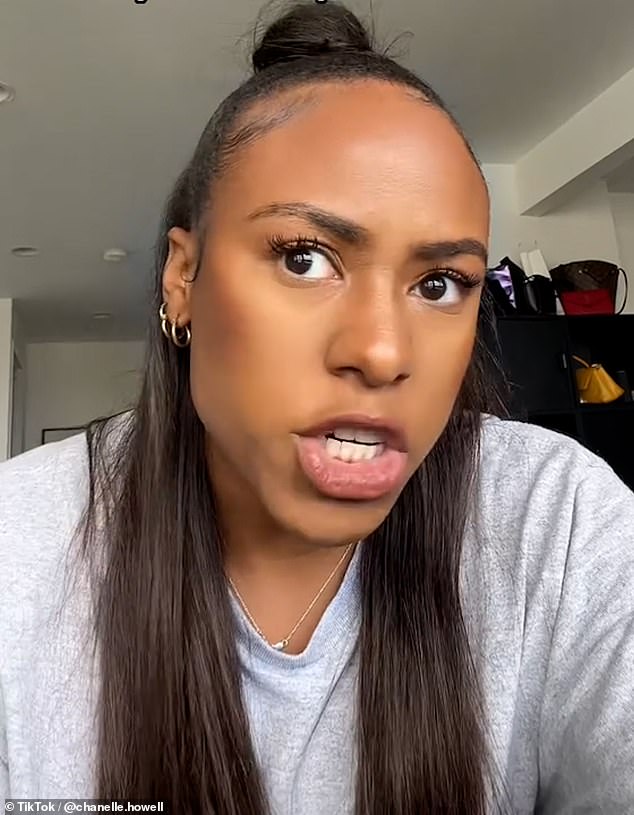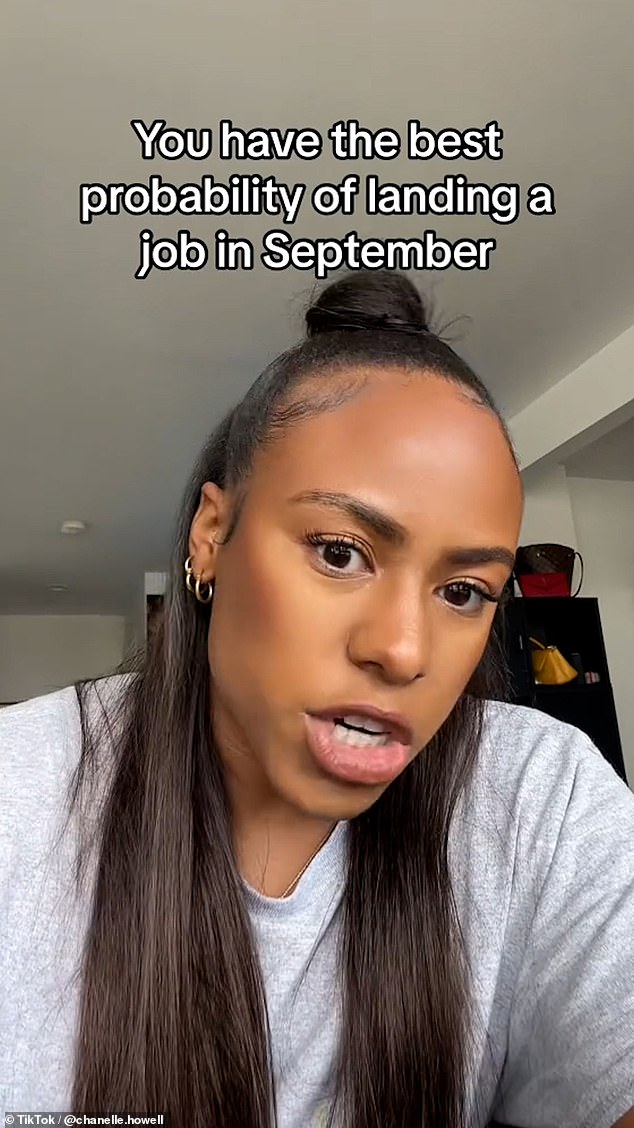Recruitment experts have revealed their top tips for landing a job during the ‘September rush’.
According to industry experts, September is one of the busiest times of the year in the employment world and can be the best time for job seekers to get started on their search for work.
In a video posted on TikTok, Chanelle Howell, a corporate recruiter and career consultant based in New York, urged job seekers to take advantage of the change of season to brush up on their CVs and prepare for a perfect interview.
“If you’ve been looking for work and haven’t had any luck, pay attention because there’s going to be an increase in September,” he said.
He explained that companies could find themselves with more cash in September because of the time of year the month falls, and they could choose to spend the money on hiring.
According to Chanelle Howell, a corporate recruiter and career consultant, there is a “September surge” in workplaces looking for new hires.
And now that most people are finishing their summer vacations, many recruiters will be returning to their desks to start hiring for a new season.
“We’re midway through the third quarter, employees are realizing they haven’t spent their entire budget, and all the executives are taking vacations,” Chanelle explained.
Chanelle advised job seekers to always have a quality CV ready to send and to optimise their LinkedIn as best they can, as this will maximise their chances of being spotted by recruiters.
‘Have your LinkedIn fully optimized so that recruiters can easily find you and the algorithm boosts your profile to the top,’ he advised.
He urged job seekers to make the most of the season and start looking now.
For those who are already employed, optimizing your LinkedIn account can sometimes result in making it appear as though you are actively seeking a new position.
For example, the social media site offers users the opportunity to have their profile picture accompanied by the words #OpenToWork.
To avoid the risk of being detected by your current employers, Chanelle recommended simply disabling this feature while optimizing other elements of the website, such as having plenty of background information and a strong network.
“There’s nothing wrong with optimizing your LinkedIn. There are also settings that hide your true ‘readiness to work,'” he suggested.
Once an employer has seen your CV, the next step is to nail the job interview. Once you’ve reached that stage, Cicely Ward from Embryo, a digital marketing agency, has shared her top tips for impressing your next potential employer.

Chanelle urged job seekers not to wait until the surge begins to ensure their CV is in tip-top shape or risk missing out on the rush of hires.

Asking the right questions in an interview is essential because it helps you be remembered.
1. Ask the right questions
Although it may seem obvious, asking the right questions in an interview is essential to making employers remember you.
As with any conversation, things should go both ways, and you should try to ask lots of questions about the company, the position, and your future there.
“Asking questions like ‘What learning and development opportunities are available to improve the team’s skills?’ and ‘What is a typical day like?’ shows that you are committed to the role and want to understand how you would fit into the company,” Cicely suggested.
‘Some important questions to ask to learn more about the company’s structure and culture include: ‘Can you tell me more about how teams within the company work together and collaborate?’ and ‘How would you describe the company culture in three words?’.
In addition to planning a quality question section, she also advised candidates to ask what else they could do to get the job.
2. Prepare
Whether you need to practise in front of your flatmate, your mum or your mirror, Cicely said: ‘Make sure you can succinctly explain your previous experience, showing how it is relevant to the advertised role and job description.
“This helps take the guesswork out of hiring managers by clearly demonstrating how your skills and experience are a good fit for the position,” she said.
“It’s always worth having some examples of your work ready so you can back up what you say with evidence. Everyone can be labelled a team player or a leader, but having some examples of how you’ve put it into practice will help you show the impact of your work.”
In addition to practicing the perfect self-introduction, Cicely advised job seekers to research the company they are applying to.
‘Not only will this confirm whether the role is a good fit for you, but if you can demonstrate that you are up to date with the company’s direction, core values and recent news, you will likely impress the hiring manager.’
3. Feel safe
When you look good, you feel good, too, and presenting yourself as your best self could be the key to cementing yourself on recruiters’ “yes” lists.
Cicely recommended opting for an appropriate but comfortable outfit.
“Always dress appropriately and in something that makes you feel good to make sure you are comfortable,” she said.
“A few minutes before the interview, you should practice a power pose, this will further boost your confidence and put you in the right mindset,” she added.

Always avoid appearing negative about past experiences, no matter how horrible they actually were.
4. Previous experiences
Cicely advised to always avoid appearing negative about past experiences, no matter how horrible they were.
“When talking about past experiences, it’s important not to be too negative as this can put off a recruiter as they may think you don’t have the right attitude to take on the opportunity and subsequently select a different candidate,” Cicely said.
‘Instead, you should talk about the positive experiences you’d like to have in your next position, and exactly what you’re looking for and what’s important to you in order to feel fulfilled at work.
‘You’re not here to make friends, so avoid talking too much to the interviewer because it may seem too casual.
‘It’s also important to remember that this is a job interview and not just a conversation with a friend, so it’s best to avoid asking questions about company or industry gossip.’
5. Consider sending a follow-up email
Before you leave the interview, it’s a good idea to try to find out when you should expect to hear back about the outcome of your application.
“If the recruiter doesn’t automatically tell you, be sure to ask. Not only will this put your mind at ease and keep anxiety at bay, but it will also make you seem enthusiastic and excited to start the role,” Cicely said.
‘However, if this conversation doesn’t happen or the recruiter doesn’t give you a response, we recommend reaching out 4 or 5 days after the interview to show enthusiasm.
‘This time period gives the company enough time to move forward in making a decision, keeping you at the forefront of their minds.’
6. Take note of the language
Cicely recommended using phrases like, “I look forward to…” and “I will showcase my strengths in this way…”, which will help show that you are confident in your abilities and make you seem excited to take on the role.
She added: “Don’t forget to take into account your body language too, as this is very important in giving an impression of confidence. Sit up straight and make eye contact when you speak, and also try to avoid using filler words like ‘um’ or ‘I think’.”


